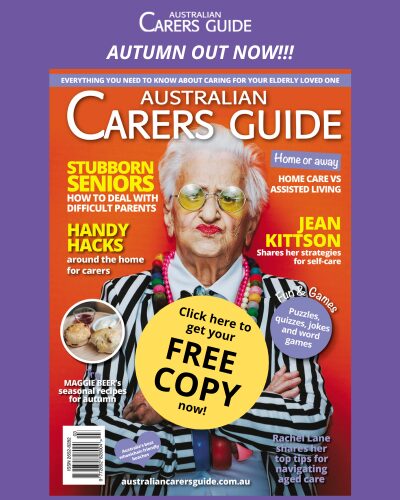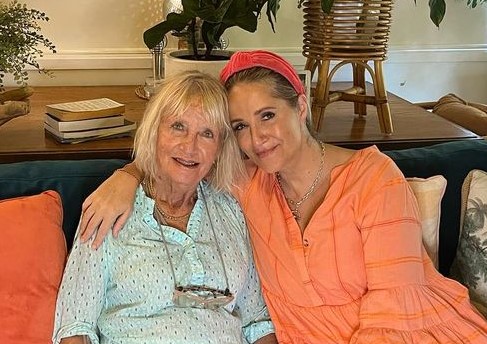Fees and charges related to Residential Aged Care and Home Care change each quarter.
Here is a summary of the Schedule of Fees and Charges for Residential and Home Care as of 20 March 2024:

How much does aged care cost in Australia?
Home and residential aged care fees and charges in Australia depend on how much money an individual has and whether they own property and/or other assets. Aged care costs change regularly due to inflation and evolving thresholds, caps etc.
Income free area – Home care and residential care
The table below outlines how much an individual can earn per year before they must contribute to fees and charges for residential aged care or home care.
| Income free area for: | Rate |
| Single person | $32,819.80 |
| Couple, Illness separated (single rate) | $32,195.80 |
|
Couple, Living together (single rate) – relevant to home care only – |
$25,420.20 |
If an individual earns less than these amounts over the course of a year, their income is excluded from the income test component of the residential aged care means test and the income test for in-home care. This means they will only pay the basic daily care fee for their home care or residential aged care.
Fees and charges for residential aged care (nursing homes)
In Australia, fees and charges in residential aged care are broken down into three areas:
Basic Daily Care Fee:
This covers basic living costs such as food and laundry. This fee is not means tested – everyone entering residential aged care pays the same basic care fee.
The basic daily care fee is currently $60.86 per day, which equates to 85 per cent of the standard full aged pension. This fee can be directly transferred from your pension.
| Maximum Basic daily fee | Rate |
| Residential aged care | $61.96 |
| Additional costs for people who live in remote areas | Residents in designated remote areas may be asked to pay an additional $1.06 per day. |
Means Tested Fee:
This covers the cost of healthcare for aged care residents. The means tested fee is calculated based on income and assets, including the resident’s home if they own one. A resident with over $32,819.80 in annual income and/or $59,500 in assets will pay a means tested fee, which is an ongoing fee towards the cost of their personal and clinical care.
Means tested fees are determined by an assessment coordinated by Centrelink or the Department of Veteran Affairs.
The means tested care fee is calculated based on:
- Marital status
- Home ownership status
- Who is living in the home, e.g., a partner, carer, or a close relative?
- Annual income
- Total financial assets
- Superannuation
- Debts or loans
Here is more information about the Residential Aged Care means assessment: Residential Aged Care means assessment – Aged care entry requirements for providers – Services Australia
Means tested care fees are capped.
The maximum amount you will pay for residential aged care costs in Australia, as of 20 September 2023 is:
| Means tested care fee caps | Rate |
| Lifetime cap | $79,942.44 |
| Annual cap | $33,309.29 |
Residential care means test – Asset thresholds and home exemption cap
After your income exceeds the lowest threshold as outlined below, there are ‘stages’ of income that determine how much you will be asked to contribute for residential aged care:
| Asset threshold | Rate |
| Asset-free threshold | $59,500 |
| First asset threshold | $201,231.20 |
| Second asset threshold | $484,693.60 |
| Home exemption cap (applies separately to both members of a couple). The net value of the home above this amount is excluded from the value of the resident’s assets. | $201,231.20 |
You can use the My Aged Care Fee Estimator to figure out how much you will pay in means tested fees for residential aged care.
Accommodation Fees:
The cost of a room in a residential aged care facility can be paid via a Refundable Accommodation Deposit (RAD), a Daily Accommodation Payment (DAP), or a combination of the two.
Refundable Accommodation Deposit (RAD):
The average RAD in Australia is about $470,000 but prices can vary greatly depending on location and facility. The RAD is often an ‘advertised price’ and is negotiated between the resident and the aged care facility.
Not everyone will have to pay a RAD to enter residential aged care, as this payment is means tested against the assets and income of an individual new resident.
A resident with annual income over $79,942.44 and more than $201,231.20 in assets will be asked to pay the full RAD for their accommodation. If a resident has income below $32,819.80 and assets below $59,500, the Australian Government will pay the RAD for their accommodation.
Here is some more information about Refundable Accommodation Deposits and how they can be organised and paid: Rad in Aged Care | Rad Payment Aged Care | Aged Care Decisions
Daily Accommodation Payment
If your income and assets are above the threshold for government support, but you cannot, or do not wish to pay the RAD applicable to your chosen aged care facility, you can choose to instead pay a Daily Accommodation Payment (DAP).
The Daily Accommodation Payment covers the cost of your room that you have not paid up-front as a RAD. The DAP is paid periodically (usually fortnightly or monthly) and is not refundable.
The DAP is calculated using the amount of the RAD for your chosen room multiplied by the Maximum Permissible Interest Rate (MPIR) set by the Australian Government, divided by 365 days.
The current MPIR is 8.34%. As an example, the Daily Accommodation Payment, based on a room with a Refundable Accommodation Payment of $500,000, would be:
$500,000 RAD x 8.34% MPIR divided by 365 days = $114.24
The DAP is calculated using the MPIR current on the day the room price was agreed. Your Daily Accommodation Payment does not rise along with the Maximum Permissible Interest Rate unless you move to a different facility or enter a different Accommodation Agreement.
Here is more information about the Maximum Permissible Interest Rate (MPIR): All about the Maximum Permissible Interest Rate (MPIR) (agedcaredecisions.com.au)
You can choose to pay for your room using a combination of a RAD and DAP.
Find out more about residential aged care accommodation costs here
Thresholds for refundable deposits and daily payments
| Threshold | Rate |
|
Minimum permissible asset level
|
$59,500 |
|
Maximum refundable accommodation deposit
|
$550,000 |
Two examples of how residential aged care fees are calculated.
Here are two case studies that help explain how residential aged care fees are calculated:
Meet Bill.
Bill is a widower in his nineties. He is less mobile than he used to be, and after discussions with his family he has decided to move into a residential aged care facility.
Bill paid off the home he has been living in many years ago and he owns an investment property outright. This property generates an income of $35,400 each year after expenses have been covered. Bill has $75,000 in the bank. The market value of his home is $1,350,000 and he has $125,000 in superannuation.
Based on a means test to determine residential aged care fees and charges, Bill will pay the basic daily care fee and a means-tested care fee. In addition, he will pay an accommodation fee to the residential aged care facility. This will either be a set amount upfront (a Refundable Accommodation Deposit), a daily rental-style payment (Daily Accommodation Payment) or a combination of both.
Bill may decide to sell his home and pay for his aged care accommodation upfront. He could also lease his property to a tenant and use this income to pay the Daily Accommodation Payment to the residential aged care provider.
Meet Angela.
Angela is 87 and needs full-time care because her daughter does not live close by, and she struggles with arthritis. She has no superannuation, very little cash outside of her pension and does not own property.
Based on her means test, Angela will only need to pay the basic daily care fee, which will be deducted from her pension. As Angela has low income and minimal assets, the Government will subsidise the remaining cost of her aged care accommodation. Her choices around where she can stay may be limited.
The fees and charges for residential aged care are different for each individual and couple, depending on their circumstances. It’s a good idea to work with a financial planner to determine the best strategy to cover your accommodation costs, and to decide whether to sell or lease your home.
Find residential aged care vacancies to suit your needs
Aged Care Decisions offers a FREE and independent service to help you find residential aged care vacancies that suit your unique needs. We also offer valuable support and professional advice for all stages of your aged care journey.
Looking for aged care?
Get a customised list of aged care options
Fees and charges for Home Care Packages
Home Care Packages are allocated across four levels. Fees and charges associated with Home Care Packages can include:
Basic Daily Care Fee:
Depending on your allocated Home Care Package, the maximum daily care fee you can be charged is:
| Maximum Basic daily fee | Rate |
| Home care – level 1 package | $11.43 |
| Home care – level 2 package | $12.08 |
| Home care – level 3 package | $12.42 |
| Home care – level 4 package | $12.75 |
Income Tested Fee:
This fee is determined by Centrelink after you have completed an income and assets test. This fee can be up to $35.95 per day.
There is a maximum any individual will pay for home care, which changes depending on their income, as shown below:
| Income tested care fee caps | Rate |
| Lifetime cap | $79,942.44 |
| Where the consumer’s income does not exceed the income threshold | |
| First cap (daily cap) | $18.30 |
| First annual cap | $6,661.80 |
| Where the consumer’s income exceeds the income threshold | |
| Second cap (daily cap) | $36.60 |
| Second annual cap | $13,323.68 |
You can use the My Aged Care Fee Estimator to figure out how much you will pay in means tested fees for home care.
Annual income up to the amounts below is excluded from the income test for home care.
| Income free area for: | Rate |
| Single person | $32,819.80 |
| Couple, Illness separated (single rate) | $32,195.80 |
|
Couple, Living together (single rate) – relevant to home care only – |
$25,420.20 |
Consumers with incomes over the income thresholds below are subject to the second cap when calculating the daily income tested care fee for home care. They are also subject to the higher annual cap that applies for home care.
| Income threshold for: | Rate |
| Single person | $63,351.60 |
| Couple, Illness separated (single rate) | $62,727.60 |
| Couple, Living together (single rate) | $48,432.80 |
Service fees and additional or ‘extra’ fees
Your home care provider may charge service, or management fees, as well as additional fees that they must disclose to you as part of their fee breakdown.
Here is more information about Home Care Packages, their inclusions, and costs:
Home Care Package Guidelines – Aged Care Decisions
The support delivered by Home Care Package levels 1-4 (agedcaredecisions.com.au)
Transition Care Program
Transition care helps older people get back on their feet after a hospital stay. It provides short-term care for up to 12 weeks, including social work, nursing support, personal care, and allied health care.
State and territory governments are the approved providers of transition care. The aged care schedule of fees relating to this is outlined below.
| Maximum daily fee | Rate |
| Transition care delivered in a home or community setting | $12.75 |
| Transition care delivered in residential aged care | $61.96 |
Short-Term Restorative Care
Short-term restorative care (STRC) is designed to help seniors reverse or slow the difficulties they may have with everyday tasks.
The program is delivered by a team of health professionals who can help seniors to manage or adapt to their changing needs.
| Maximum daily fee | Rate |
| STRC delivered in a home or community setting | $12.75 |
| STRC delivered in a residential care or hospital setting | $61.96 |
Download the most recent Schedule of Fees and Charges for Residential and Home care by clicking here.
What if I can’t afford aged care?
In Australia, the aged care system is set up so everyone can access quality care, regardless of their financial situation. There may not be as broad a choice of facilities if someone does not have funds to contribute to the cost of care, but there are still options, and funds can be withdrawn from pension payments to contribute to aged care fees.
Here is more information about paying for aged care with limited financial means:
What happens if you can’t afford aged care? (agedcaredecisions.com.au)
At Aged Care Decisions we can assist you at every stage of your aged care journey.
Our 100% FREE aged care matching service helps over 10,000 Australian families each month.
We use custom-built software that takes your location, budget, specific care needs and personal preferences, and creates a tailored aged care Options Report for you. This report narrows your search down to only include vacancies and available providers that match your needs.
Essentially, we do all the running around for you – and it costs you nothing.











